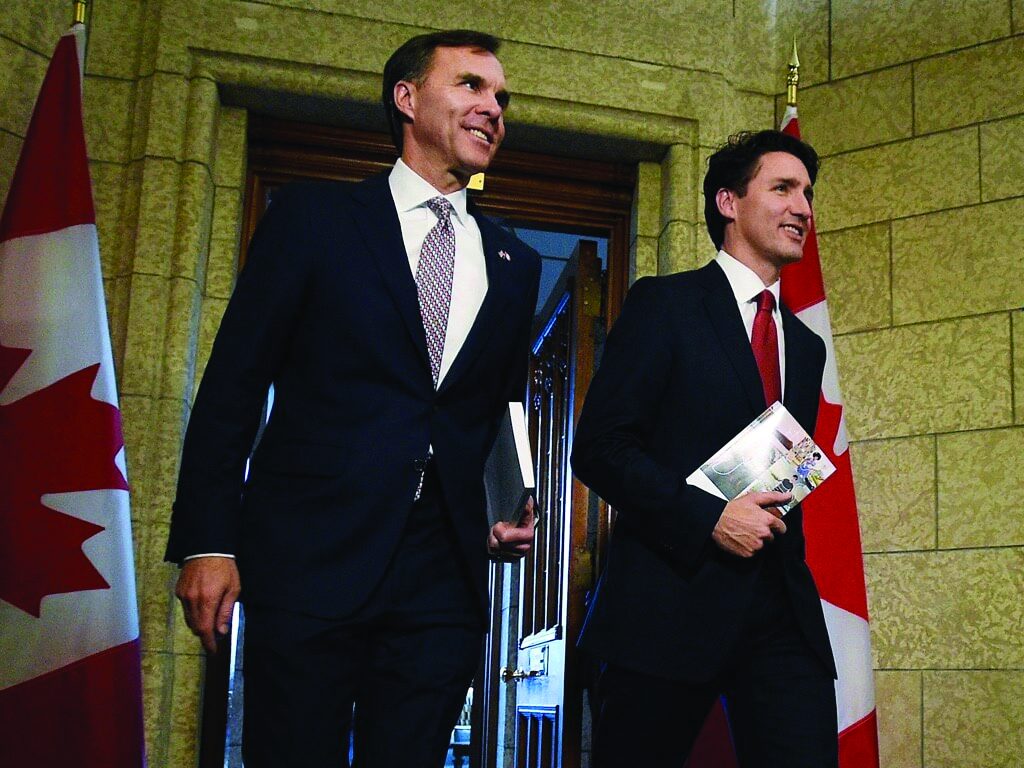
Social programs, industries receive boosts
By Jerrison Oracion, Senior Columnist
The Canadian Federal Budget this year caused a lot of anticipation. Some people thought that it would be a response to Donald Trump’s State of the Union Address last month. The speech actually fulfilled more of the Liberal Party’s promises and it is the shortest Federal Budget speech that I had seen, with a running time of around 20 minutes. Before it was read, the speech was delayed by 35 minutes because some MPs were complaining that other MPs already received the speech while they were voting to proceed to it. Also, they were complaining that an MP tweeted a picture of the proceedings in the House of Commons, which is not allowed.
Then Minister of Finance Bill Morneau read the speech. The Federal Budget mainly focused on benefitting the middle class. He began by talking about the 150th anniversary of Confederation and the previous generations, which he described as: “Generations that built a country on the belief that with hope and hard work, they could deliver a better future for themselves, and for their kids and grandkids.” Also, he talked about people being unsure of the future because of the changes in technology. Next, he talked about how the Canada Child Benefit has helped a lot of families.
He gave an update on the government funding public transit projects and he said that the funding helped the maintenance of the SkyTrain. He also announced that 50,000 social housing units will be renovated to reduce the amount of people on the streets. Then, he talked about funding for education and skills training to show how innovative the country is (further details can be found in our News section). There was an announcement on how the government will fund digital and clean technology, agriculture, advance manufacturing, bio-sciences and clean resources to “lead globally and create good jobs for Canadians.” The second half of the speech involved Morneau recapping the accomplishments that the government achieved in the past year, including their climate change plan, more rights for women, and more funding for indigenous people and CETA.
The two biggest announcements in the Federal Budget were that $11 billion will be used to fund a national housing strategy, which is something that a lot of people were waiting to happen, and could significantly reduce homelessness. Also, he announced that they will fund $7 billion in the next 10 years to build more child care spaces, a move welcomed by the NDP. Finally, the opposition parties responded to the speech. Conservative Finance critic Gérard Deltell asked Morneau why the deficit is bigger than predicted, and NDP ethics critic Alexandre Boulerice asked him when the government will help people get out of poverty. Conservative Immigration critic Michelle Rempel asked Morneau how they found the information that was in the speech.
Morneau answered all of their questions with the same response, which is that the Canada Child Benefit helped a lot of families and the unemployment rate in the country is lowered. In the case of Rempel’s question, he said that he got the information from economists, which are projected and subject to change without notice. He adds that investing in various things will boost the economy, which will likely work in the next few years compared to when Harper’s administration cut funding for programs. The Federal Budget this year showed that the country is stable and that sunnier days are on the horizon.
